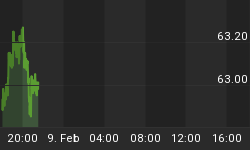Resolving Debt To Make Way for Growth
Bud: How exactly is some of the debt going to get resolved in Europe and the United States before the Wave 5 and Renaissance periods come along?
Glenn: It's very difficult to say how it will be resolved. You can only resolve debt two ways. Either you pay it off or write it off. There will be a lot of people who can't pay their debts, like with the housing situation.
Those who made tons of money building houses and got too greedy toward the end used a lot of their money that they made building houses to build even more, hoping they'd make even more. All of a sudden, they lost everything.
Their loss becomes the payoff of the debt. The people who own the house aren't paying them. The money they invested then gets lost. That sort of becomes a money debt property. That's gone, and that's the end of it.
The same things happened with banks where people just walk away from their houses. The bank ends up having to pay that loan. Either a loan is paid off and the money disappears, or the loan is forgiven or defaulted on and the money disappears. It's one of the two.
Normally when you are in a fractional, reserved banking system, 90% of all of the money in circulation is money lent on top of money. It's all expansionary, inflated-value money. As that money disappears, the money that's left keeps becoming worth more and more.
If somebody borrows $100,000 and doesn't pay it off, then that loan removes $100,000 from circulation by its being written off. If they pay it off, then it removes $100,000 from circulation.
One way or the other, it's going to be gone. Somebody made it and gave it back or didn't give it back, and the other person had to pay for it, but it's gone. Banking creates artificial expansion through the expansion of credit. As people stop borrowing, they create a contraction of credit. That contraction can be quite severe.
If you're going from 90% of all of the money in circulation being borrowed into existence down to only 15% or 20%, you've seen a reduction in the amount of currency by 50% or 75%, which means that currency is going to increase dramatically in value by 100% or 200%.
Bud: You're saying that Europe or the US will just print their way out of it.
Glenn: You can try to print your way out of it. You have to get permission to be able to do that. If the public doesn't allow you to do that, then you can't do that. Then all of a sudden, you're stuck with a situation where you're just going to have to suffer through the deflation.
If they printed enough to equal the deflation, then there wouldn't be the visible signs of inflation. There would just be a neutral period, instead of the dollar increasing in value. That's what I think the Fed and the government has been doing.
The Fed knew this was coming and explained it to whoever they explained it to to allow it to happen. They all realized that no matter how much money they put into circulation, it would be counteracted by this massive deflationary period, so it wouldn't have much of an impact.
So far, it hasn't had much of an impact. On average, I think inflation has only been 3% at the most. That's just recent. It was way less than that just a year or two ago.
The power that we're talking about is like an 800-pound gorilla, and the Fed is like a 10-pound gorilla. The Fed can't control the world. It can only control the US to some degree and do what it's allowed to do and makes sense to those who are running it and have some control over it.
The problem is way bigger than them. It's not really a problem. It's a reality of fractional-reserve banking that you go through periods of expansion and contraction. You can't stop either one of them.
















